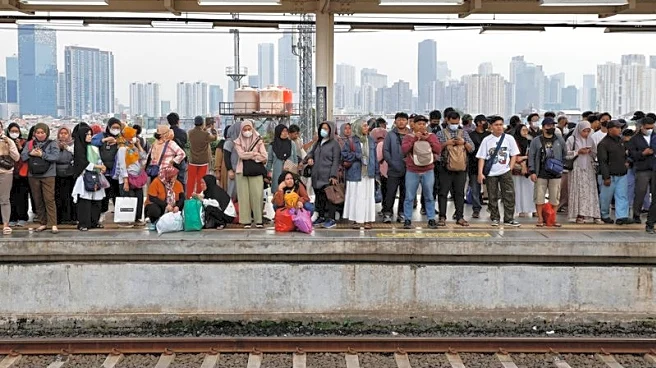JAKARTA (Reuters) -Indonesia has drawn up new rules that will allow the central government to lend to local authorities and state-owned enterprises in order to support the country's development projects.
According to a copy of the new regulation, signed last month but made public this week, such loans could be granted after taking into account potential risks as well as the central government's financial capacity.
The policy is designed to provide cheaper funding for central government infrastructure projects and other development programmes carried out by provincial and district governments, the document read.
President Prabowo Subianto has cut the "regional autonomy" funds to be paid to local governments in 2026 to 693 trillion rupiah ($41.82 billion), down 20%, a decision that has drawn criticism from provincial and district leaders.
Local leaders have said they may have to raise local taxes to make up the shortfall, which they fear could lead to protests.
Prabowo has reduced next year's transfers to local governments to make space for his priority policies, including a flagship programme to give free meals to 83 million children and pregnant women.
He has also sought to raise defence spending while keeping the annual fiscal deficit under the legally binding ceiling of 3% of GDP.
Any loan will be funded by the central government's budget, must be approved by parliament and must have a tenure longer than 12 months. Any loan proposed by a local government must also be approved by its own parliament.
Borrowers must also show healthy financial metrics, and in the case of state-owned firms, will need the approval of stakeholders.
The central government will also impose fines for late payments, set according to an agreement with the borrower.
($1 = 16,570 rupiah)
(Reporting by Gayatri Suroyo; Editing by David Stanway)










